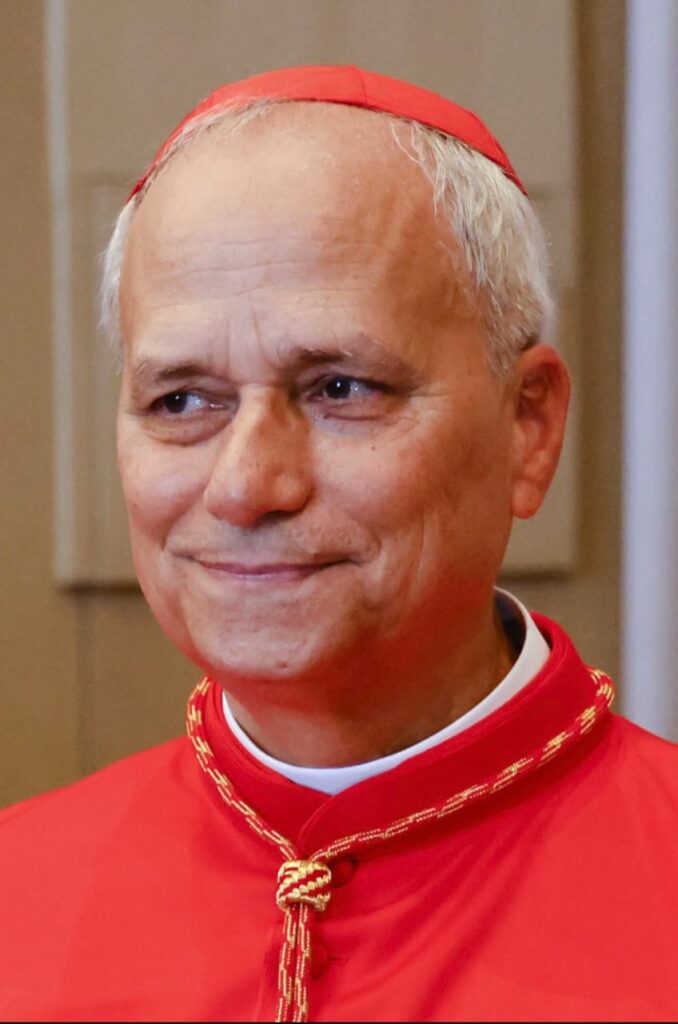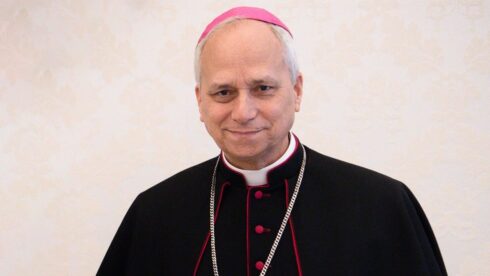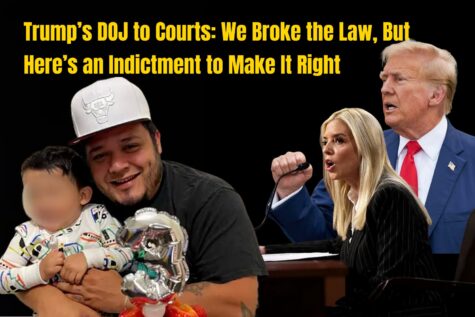The election of Pope Leo XIV, born Robert Francis Prevost in Chicago, marked a historic milestone for the Catholic Church as the first American to ascend to the papacy. Yet, within hours of the announcement, jubilation on the American right, particularly among supporters of President Donald Trump’s “Make America Great Again” (MAGA) movement, gave way to disappointment and skepticism.
Though President Trump praised Leo’s election as a “great honor” for the United States, prominent MAGA voices were quick to challenge the new Pope’s ideological alignment. “It is shocking to me that a guy could be selected to be the Pope that had the Twitter feed and the statements he’s had against American senior politicians,” Steve Bannon, Trump’s former chief strategist and a devout Catholic, told the opitanglobamedia news. Bannon warned that “there’s definitely going to be friction” between Leo and Trump, hinting at a rocky relationship between the Vatican and the White House.
Little is publicly known about Pope Leo’s political views, but his history of voicing concern for immigrants and the poor, his support for liberal-leaning Pope Francis, and his choice of papal name—interpreted by some as an homage to progressive church leadership—have alarmed right-wing Trump allies. Social media posts under an account believed to be his reveal past criticism of Trump’s immigration policies and other political stances.
MAGA Conservative Figures Sound the Alarm
The election of Pope Leo XIV sparked immediate backlash across conservative media aligned with the MAGA movement. On Bannon’s “War Room” podcast, guest after guest raised alarm about the perceived ideological continuity between Leo and Pope Francis, whom many conservative Catholics have viewed with suspicion for his progressive stance on immigration, economic inequality, and the environment.
“This guy has been massively embraced by the liberals and the progressives,” said Ben Harnwell, a close Bannon ally and conservative Catholic commentator. “He is one of their own… he has Francis’s DNA in him.” Jack Posobiec, another MAGA commentator reporting from Rome, described Leo’s election as “a message to President Trump” from within the Church hierarchy, framing the decision as a deliberate rebuke of Trump-era policies.
Laura Loomer, a far-right influencer with influence inside Trump’s orbit, labeled Pope Leo “anti-Trump, anti-MAGA, pro-open borders, and a total Marxist like Pope Francis.” Meanwhile, Matt Walsh of the conservative Daily Wire struck a cautious tone, saying he would withhold judgment but acknowledged “good signs and bad signs” in Leo’s early messaging. The initial outcry reflects deep anxieties among Trump’s Catholic supporters that the new papacy may further alienate them from Vatican leadership.

MAGA: A Divided Catholic Electorate
Despite vocal MAGA opposition, many American Catholics celebrated the election of Pope Leo XIV. The U.S. Conference of Catholic Bishops issued a statement of unity and hope, declaring: “Certainly, we rejoice that a son of this nation has been chosen by the cardinals, but we recognize that he now belongs to all Catholics and to all people of good will.” The bishops praised Leo’s early emphasis on “peace, unity, and missionary activity.”
Survey data from the Pew Research Center shows the complexity of Catholic political identity in the U.S. Roughly 20% of Americans identify as Catholic, with 53% leaning Republican, yet nearly two-thirds support legal abortion in most cases—a divergence from official Church teaching. Moreover, 78% of U.S. Catholics expressed favorable views of Pope Francis as recently as February, including a majority of Catholic Republicans.
In Chicago, Pope Leo’s hometown, reactions were similarly nuanced. Rick Stevens, a Catholic deacon visiting from New Jersey, expressed hope that the new Pope would “continue with Francis’s agenda going forward.” Others voiced cautious optimism that Leo’s leadership might chart a moderate course between polarized factions in the global Church and American politics alike.
Social Media Footprints Stir Debate
Much of the MAGA movement’s concern stems from Pope Leo’s digital trail. An X (formerly Twitter) account linked to his name features posts critical of Trump’s immigration crackdown, supportive of stricter gun control, and skeptical of some right-wing Catholic interpretations of doctrine. Notably, the account shared a rebuke of U.S. Vice President J.D. Vance over his prioritization of national over global compassion, linking to an article titled “JD Vance is wrong: Jesus doesn’t ask us to rank our love for others.”
While the Vatican has not confirmed the authenticity of the account, its content has fueled narratives of Leo as a progressive sympathizer. Some posts criticized Hillary Clinton’s outreach to pro-life Catholics during the 2016 election, showing that Leo’s views may not align neatly with partisan categories. “I try not to play the politicization of the Pope game,” Vice President Vance told conservative radio host Hugh Hewitt on Friday. “I’m sure he’ll say things I love, and things I disagree with, but I’ll continue to pray for him and the Church.”
The Pope’s views on LGBTQ issues remain unclear, adding further intrigue to his pontificate. Some conservative clerics believe he may be less supportive of LGBTQ inclusion than Francis, while others anticipate continuity. For now, speculation reigns as Catholics and political observers await Leo’s first substantive statements on global and Church affairs.
Faith, Politics, and an Uncertain Future
As the dust settles from Pope Leo XIV’s historic election, a profound tension emerges between his global pastoral role and the ideological expectations of American political factions. Steve Bannon foreshadowed a potential clash, warning that if Leo opposes Trump’s planned mass deportations, “I would stand by” the former president against the Pope.
Trump himself has maintained an uncharacteristic silence beyond his initial congratulatory remarks, but his allies are already positioning Pope Leo as a potential adversary in the culture wars. The question now looms: will Leo’s papacy seek reconciliation or deepen the divides within American Catholicism and the broader U.S. political landscape?
For many Catholics, the answer lies not in early speculation but in the actions and teachings that will unfold in the coming months. “He’s not going to be the silent one,” said the Pope’s brother, John Prevost. “I know he’s not happy with what’s going on with immigration… he won’t just sit back.”
As both the Vatican and the White House navigate this unprecedented dynamic between an American Pope and a populist president, the world watches, wondering how faith and politics will intertwine in this new chapter of history.














